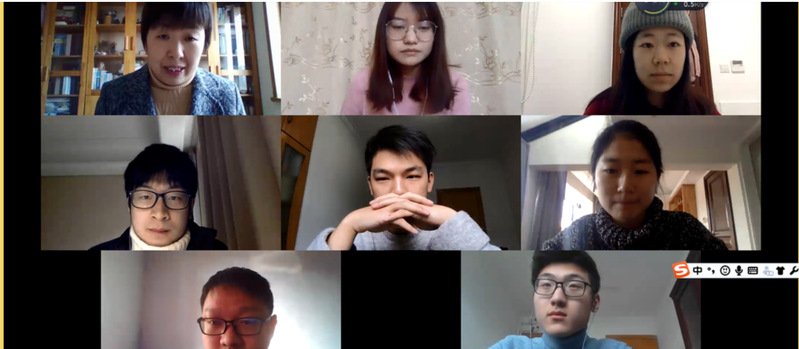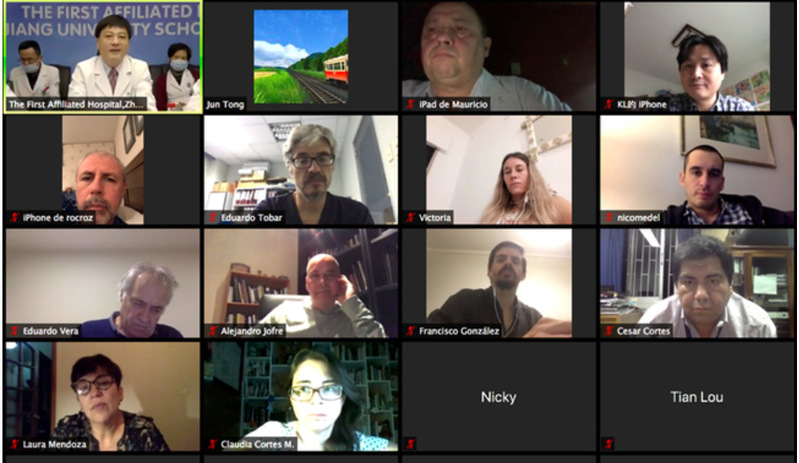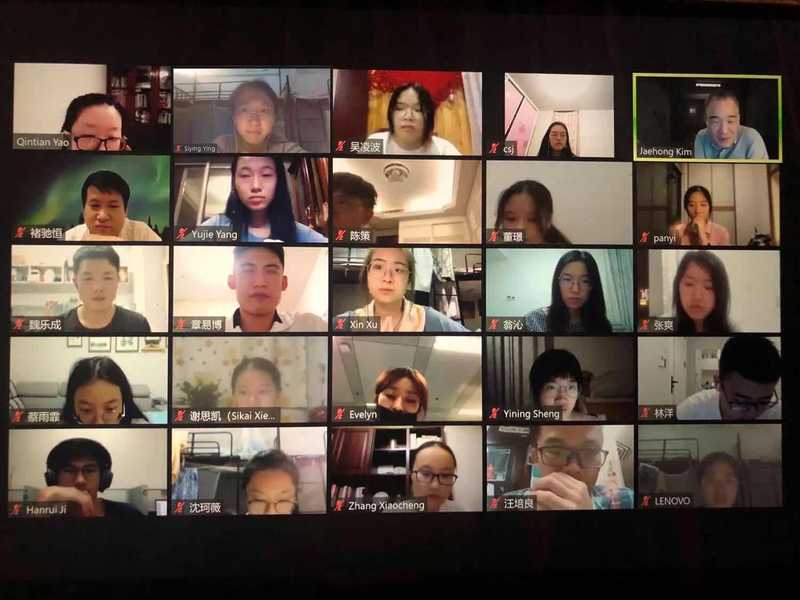Insight@ZJU: President WU Zhaohui shares his vision for new paradigms of higher education
[Message from the Editor: The COVID-19 pandemic is reshaping the way people live, work and learn. Faced with the immense uncertainty of the world, what adaptations should universities consider to ensure their long-term resilience? How do we envision the new strategic landscape for universities? At the invitation of International Association of Universities (IAU), President Wu Zhaohui shared his view in the article entitled “New Paradigms for Higher Education in a Post-coronavirus World" published in the special anniversary issue of IAU Horizons.]
AI embedded in daily lives
The spread of COVID-19 has made the world fully aware of the power of artificial intelligence. Almost all epidemic prevention scenarios, ranging from predicting viral spread to analysing viral genes and tracing close contacts, are inseparable from AI. It is generally recognised that AI is no longer a technology out of reach; rather, it is becoming deeply embedded in our lives. New business models are emerging with the large-scale application of AI in health care, finance, social networking, remote work, logistics and so on.
Hybrid model based on “intelligence plus education”
In the sector of higher education, a hybrid model based on “intelligence plus education” is expected to become a new trend. This model advocates for human-machine symbiosis, teacher-student interaction, life-long learning, and ubiquitous learning. It will help bridge “the last mile” between in-person and digital education, and therefore contribute to a more personalised approach while improving equal access to educational resources. In terms of content, priorities will be given to open-loop and general education, which aims at developing well-rounded students capable of creating a better world with global competence and social responsibility.
The hybrid model is also able to break down time and physical limits, fundamentally changing how universities deliver education, pursue innovation, and serve the public good. In countries where the epidemic has been effectively contained, universities are experimenting a mix of online and in-person teaching. This helps to diversify universities’ provision beyond bricks and mortar and may become a common practice in the post-coronavirus era.

An online class
ZJU’s practice
Take Zhejiang University as an example. Empowered by disruptive technologies, we started creating a smart campus years ago. In 2017, we launched the “ZJU Online” project, which was designed to build a series of online platforms like “Learning at ZJU” and “Research at ZJU”. The coronavirus outbreak represents an opportunity for us to evaluate our preparedness for new changes. Despite the challenges, the University has remained resilient by adopting a combination of online and offline approaches to learning, research, engagement and administrative services.
Global engagement enhanced by digital technologies
Solutions to challenges such as COVID-19 require global engagement efforts, which will continue to be enhanced by digital technologies. While in-person meetings are irreplaceable in some cases, virtual meetings have proven to be a cost-effective option. Many international activities, including guest lecturing, summer schools and academic forums, can be held partly or even completely online. The time and resources otherwise invested in travel logistics can now be saved and channelled to the central activity itself.

Virtual signing ceremony between ZJU and KAIST
Shared commitment to human welfare
As much as the virus distances people, communications technology and a shared commitment to human welfare have brought us closer together. Using various online platforms, medics and scientists across the world are able to share timely information and hands-on experience to combat the virus. Since early March, ZJU has organized more than 40 video meetings with 415 healthcare institutions from 39 countries. Via networks such as IAU, we managed to widely circulate COVID-19 treatment handbooks compiled by our medical staff at the forefront of the combat against the pandemic. ZJU has also proactively facilitated collaborations around other scientific areas. From university leadership to academics, a variety of meetings, seminars and signing ceremonies were held virtually in the past months. Notwithstanding intricate geopolitics, we believe that in the post-coronavirus era, universities will be more aware of the value of international collaboration and develop more collaborative ideas through creative digital approaches.

Medics from ZJU and South America shared COVID-19 treatment experience via video
Internationalisation at home
On the other hand, the pandemic brings to the limelight the strategic importance of internationalisation at home. When transnational mobility becomes difficult, it is crucial to look within our own campus and ensure an internationalised ecosystem is there to inspire and empower faculty and students. This summer saw over 4000 ZJU undergrads attending 110 short online learning programmes jointly developed with our partner institutions. This is only one component of the international micro environment, which requires our best endeavours in the development of infrastructure, curriculum, research and digital technology. It is therefore necessary for universities to sustain and even ramp up investment in internationalisation on campus while envisioning the post-coronavirus period.

An online summer school with Yale